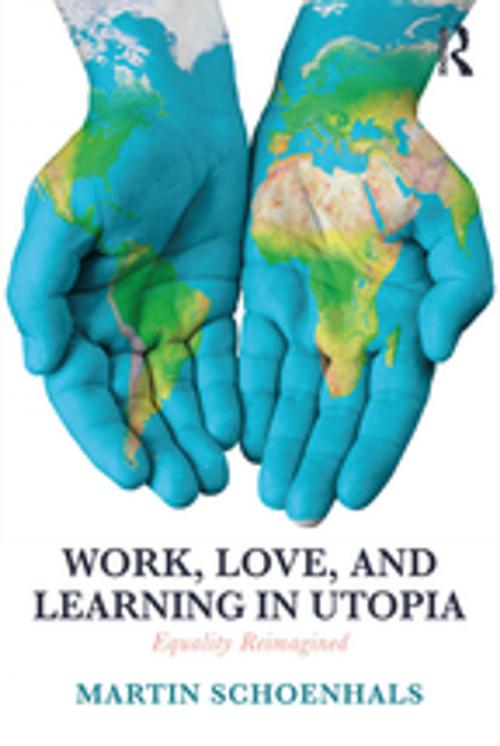Work, Love, and Learning in Utopia
Equality Reimagined
Nonfiction, Social & Cultural Studies, Social Science, Anthropology, Sociology| Author: | Martin Schoenhals | ISBN: | 9781351000291 |
| Publisher: | Taylor and Francis | Publication: | December 7, 2018 |
| Imprint: | Routledge | Language: | English |
| Author: | Martin Schoenhals |
| ISBN: | 9781351000291 |
| Publisher: | Taylor and Francis |
| Publication: | December 7, 2018 |
| Imprint: | Routledge |
| Language: | English |
Work, Love, and Learning in Utopia breathes new life into the age-old human preoccupation with how to create a happier society. With a fascinating mix of research from cross-cultural psychology, macro history, and evolutionary biology, the book gives new credibility to the advocacy of radical equality.
The author, a psychological anthropologist, argues that the negative emotions of sadness, anger, and fear evolved in tandem with hierarchy, while happiness evolved separately and in connection to prosociality and compassion. The book covers a wide range of human concerns, from economics and education, to media and communication, to gender and sexuality. It breaks new boundaries with its scope, arguing that equality of love is as important and possible as is economic equality. Its argument is provocative yet practical, and each chapter ends with concrete proposals that invite dialogue with any student of policy.
Written in an easily accessible style, this book will appeal to anyone who has ever puzzled over how our social world could be remade. In particular, it will be very useful to students and scholars of anthropology, sociology, and psychology.
Work, Love, and Learning in Utopia breathes new life into the age-old human preoccupation with how to create a happier society. With a fascinating mix of research from cross-cultural psychology, macro history, and evolutionary biology, the book gives new credibility to the advocacy of radical equality.
The author, a psychological anthropologist, argues that the negative emotions of sadness, anger, and fear evolved in tandem with hierarchy, while happiness evolved separately and in connection to prosociality and compassion. The book covers a wide range of human concerns, from economics and education, to media and communication, to gender and sexuality. It breaks new boundaries with its scope, arguing that equality of love is as important and possible as is economic equality. Its argument is provocative yet practical, and each chapter ends with concrete proposals that invite dialogue with any student of policy.
Written in an easily accessible style, this book will appeal to anyone who has ever puzzled over how our social world could be remade. In particular, it will be very useful to students and scholars of anthropology, sociology, and psychology.















